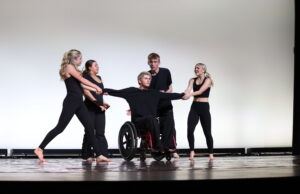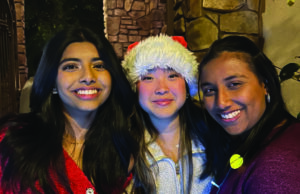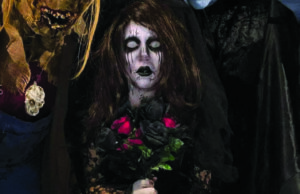Kavita Rai keeps her cool in Quarantine

Quarantine is a relatively new way of life for most people. Due to COVID-19, many have had to find new ways to work, exercise and socialize, all while staying physically distant. For Kavita Rai, this lifestyle is nothing new, as she has had to practice self-isolation for several months prior to COVID-19.
Rai found out that she had cancer in December 2019. “I was diagnosed with Hodgkin’s disease lymphoma, which is a blood cancer… every two weeks I go in for chemotherapy. I have 12 chemotherapy sessions in total,” Rai said.
Aside from her treatment, Rai’s daily routine changed drastically as a result of her unexpected diagnosis. “I had to go on a health leave from school, so it prohibited me from being able to still go to school. I had to social distance long before COVID-19 happened… it was really just a bunch of learning how to juggle a bunch of different mixed emotions at once, while still trying to be somewhat positive about it too,” Rai said.
During one of her recent treatment sessions, Rai was tested for COVID-19. “I got tested for COVID-19 as a precautionary measure… they have to track everyone and because it was a regular patient, it was necessary for them to know the status of their patients,” Rai said. According to her, the process of getting tested is extremely unpleasant. “Getting tested, I’m not going to lie, was really, really invasive… they basically just take a swab through your nose and they really, really go in their face,” she said.
Rai has developed a routine that works for her in quarantine, something that many are currently struggling to do so. “One thing that has really helped me is really anyway to express yourself, whether it be creatively or through writing… it’s a good way to track your growth and see how you’ve grown, so that’s one thing that I’ve been consistently doing,” Rai said. Since she is forced to stay at home, Rai has come to appreciate the outdoors a lot more. “I really just appreciated getting fresh air a lot more. That’s something I think we just take for granted in our day to day life as we just go through the motions,” she said.
While people are still getting used to staying isolated, Rai hopes that this experience shines a light on a lifestyle that many have to endure. “This is a glimpse of what a lot of immunocompromised people [have to go through]… there are people who have chronic illnesses who have to do this for, you know, a longer period of time.”



